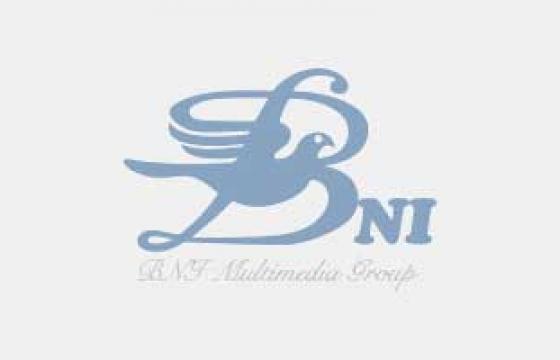In October 2016, more than 5,000 people took to the streets of Namkham, northern Shan State, when the township’s education officials failed to pay ministry-allocated stipends to ethnic language teachers.
Photo Jai Jai Lao Mong- an evening Shan language school in northern Shan State’s Mong Ngaw Township.
This was not the first scandal related to the teaching of native language in the region. A few years ago, a high school principal in a small town in southern Shan State was caught embezzling funds for the 2014-2015 academic year. After one of the political parties in town pointed the finger at him, the principal promised to return the money.
The corruption was fueled by the fact that ethnic language teachers are not paid monthly salaries like other teachers, and schools must apply for funds to pay them retroactively at the end of the year. This discriminatory practice is just one of many problems within the current system of ethnic language teaching in Burma that urgently needs to be addressed.
Ethnic language teaching was banned in public schools for four decades after the military seized power in 1962. To accelerate a policy of “Burmanization,” the military regime adopted Burmese as the official national language and forced schools throughout the country to employ it as the language of instruction. Tutors and activists who taught ethnic languages were threatened or jailed.
Changes began after the 2010 elections and the opening up of Burma to the world. Beginning in 2012, ethnic languages were allowed to be taught in government schools, but only outside school hours, and with no budget from the Education Ministry.
But ethnic schools lacked textbooks. The government had arranged for Burmese-language curriculum books to be translated directly into ethnic languages, but no one used them as the translated texts did not follow the natural alphabet of the respective languages. A Burmese kindergarten textbook was translated into Shan by the Shan Literature and Culture Association, but never used. Ethnic literature and culture associations had to try to develop their own textbooks and then request they be authorized by the government.
Finally, after being banned for over four decades, ethnic language teaching was formally recognized under Article 44 of a new Education Law, passed in September 2014, which declared that “in Divisions or States, teaching of ethnic languages and ethnic literature can be implemented by state governments, starting from Grade 1 and gradually expanding [to higher grades].”
Schools were still only allowed to teach ethnic languages outside regular school hours, and only until grade 2. However, for the first time, a budget was allocated for this subject. Starting in the 2014 academic year, the education ministry began printing ethnic language textbooks which were mostly developed by groups supporting ethnic literature and culture. Initially, the texts were printed in color, but for the 2016-2017 academic year they reverted back into black and white, and were printed in a smaller size.
Over the past few years, the United Nations International Children’s Emergency Fund (UNICEF), working in cooperation with the government, has been conducting curriculum training for ethnic language associations so that they have the capacity to develop textbooks. However, the government has not taken any responsibility for ethnic language teacher training, which respective ethnic literature and culture associations have had to organize on their own, and many ethnic teachers have not had the opportunity to join.
A recent study by ethnic researchers, “The impact of centralized education in rural ethnic schools in Burma,” focusing on eight government schools in rural Shan, Pa-O, Kayan and Kachin areas, found that in 2015 only four of these schools taught their own ethnic languages. Major challenges included a lack of teachers, negative perceptions by both parents and educators towards the benefits of ethnic education, and students’ inability to attend classes outside regular school hours.
In two post-primary schools in Pa-O areas in southern Shan State, Pa-O language was not taught. There were no native Pa-O teachers at the schools, and parents did not actively support their children learning their language, the report said, noting that parents and school committees were waiting for support from the government in providing teachers, while the principals, who were not from the local area, did not prioritize ethnic language teaching.
Similarly, two post-primary schools in Kachin State were unable to arrange local language teaching. Although local teachers were available, students were exhausted after their long official classes, and only a few could join ethnic language classes after school. When teachers tried to teach in the morning before school, students were unable to come earlier as they lived too far away.
The two post-primary schools in Shan areas covered in the study were able to teach Shan language, as there were local teachers available, and the school committees, including parents, were supportive of teaching their native tongue. Local villagers also contributed to the stipends of the ethnic language teachers, as government salaries did not come through until the end of the year.
Karenni language was being taught in the two schools in Karenni towns covered by the report, mainly by government-employed teachers, some of whom were not locals and did not speak the local language properly. This was following a directive from the Department of Education requesting schools provide opportunities for government-employed teachers.
This policy had encouraged some Burmese teachers to join Karenni language teacher training hosted by the Karenni New Generation Youth group and the Karenni Literature and Culture Association. While it was a positive step that these teachers were trying to learn Karenni language, it was unclear whether they were motivated by the commitment to the community or by the chance to earn extra money. A more effective policy, it was concluded, would be for ethnic languages to be taught by those naturally fluent in the language and with an understanding of local culture.
The designated salary for ethnic language teachers is significantly lower than for regular teachers. Ethnic language teachers are entitled to only 30,000 kyat (about US$23) per month for eight months, even though classes are taught for nine months of the year. Regular teachers are paid a monthly salary of 180,000 kyat ($138) throughout the year.
Evidently, ethnic language teaching is not being adequately financed by the central Union government. Even though Article 44 of the Education Law allows ethnic languages to be taught, the state governments are not being given authority to collect taxes to finance the proper implementation of this policy. The state governments have to rely entirely on the union government for expenditure, while resource allocation from the union-level to the state-level has no transparency or accountability.
It appears the central government has no long-term sustainable vision to promote ethnic language teaching. Rather than having ethnic languages taught out of school hours, mother-tongue-based multilingual education should be practiced, giving every student the chance to learn their own language at school. Schools should also have the authority to decide how many languages they teach, depending on the ethnicity of their students, and to recruit teachers based on their needs.
The current top-down approach is ineffective and ignores the interests of local people. Only a decentralized, bottom-up approach towards ethnic language teaching will promote peace and sustainable educational development in Burma.






